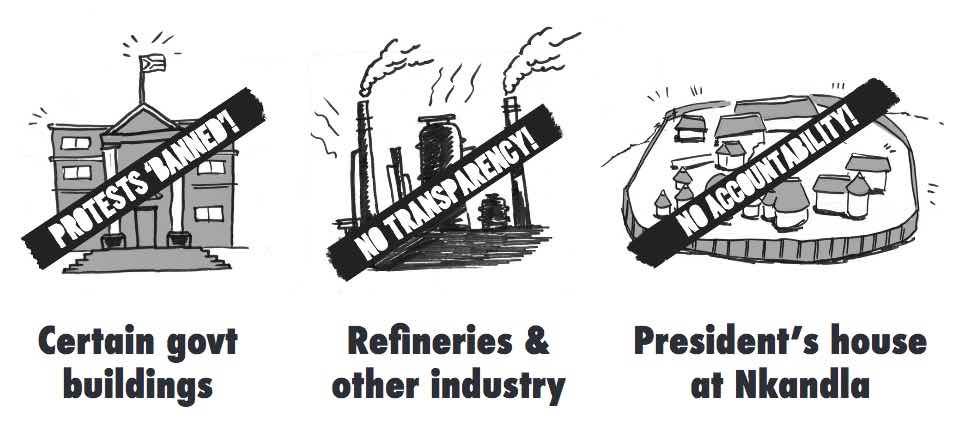Parties reject bill’s ‘lack of definition’
The following article was published online by IOL News:
The ANC has been criticised for dithering on a definition of national security, a cornerstone of the controversial Protection of Information Bill.
The bill seeks to classify state information in the interest of national security, but yesterday the ruling party said it was “toying” with the idea of not defining national security.
The Right2Know Campaign’s Murray Hunter said it was impossible to not have a definition and this would open the law to abuse.
“No amount of air-brushing can hide the underlying flaws in the drafting. There’s only one thing that can save the process – scrap this draft, reopen it for public consultation and rewrite from scratch,” he said.
In a meeting of the committee processing the bill, ANC MP Luwellyn Landers said:
“We haven’t a clear position as to whether we should have (a definition) one or not; we are toying with the idea.”
He said they had looked at the 1995 conference which led to the drafting of the Johannesburg Principles on national security, freedom of expression and access to information.
“What came out of the conference is that virtually nowhere in any democratic jurisdiction such as ours have legislatures or governments bothered to define national security.”
Landers said a point had been made at the 1995 conference that national security meant different things to different countries; as a consequence, there was no universal definition of national security.
“We’ll end up writing pages and pages of stuff to try and encapsulate what it is you mean, when in actual fact, people sitting there in robes in our courts understand it and therefore don’t need its defining.”
But the idea was rejected by the opposition parties.
DA MP David Maynier said his party said not defining national security would give the classifiers in the executive branch of the government wide discretion and power to classify, which might lead to over-classification and even de facto censorship. The fact that the concept was, or could be, contested was even more reason to define it, he added.
Maynier argued that in the second principle of the Johannesburg Principles, there was a definition of national security.
The IFP’s Mario Oriani-Ambrosini said the ANC’s notion had its appeal, as it did threats.
He said he was equally reliably informed that where they had been called upon to interpret, the courts experienced difficulties to the point of relying on the government to tell them what national security was.
Landers argued: ”We’ve narrowed the application of the bill to just six or seven entities, so it’s dealing with matters of intelligence and security. I don’t understand where the matters of abuse and over-classification will come from.”
Source: IOL News



